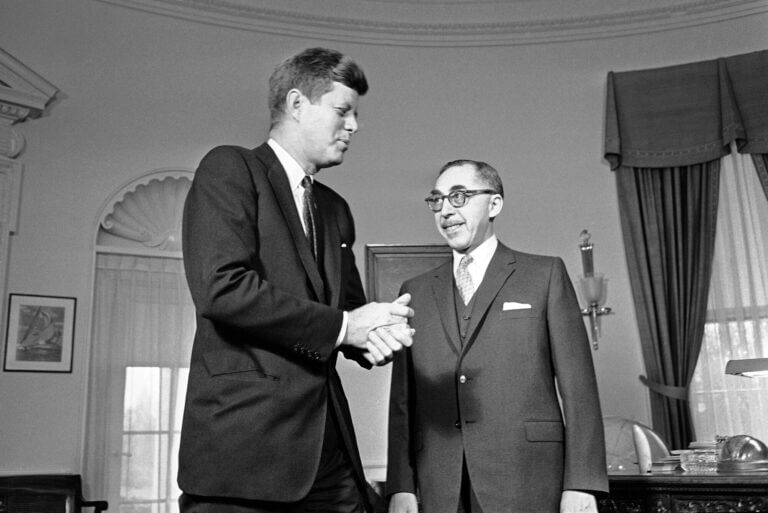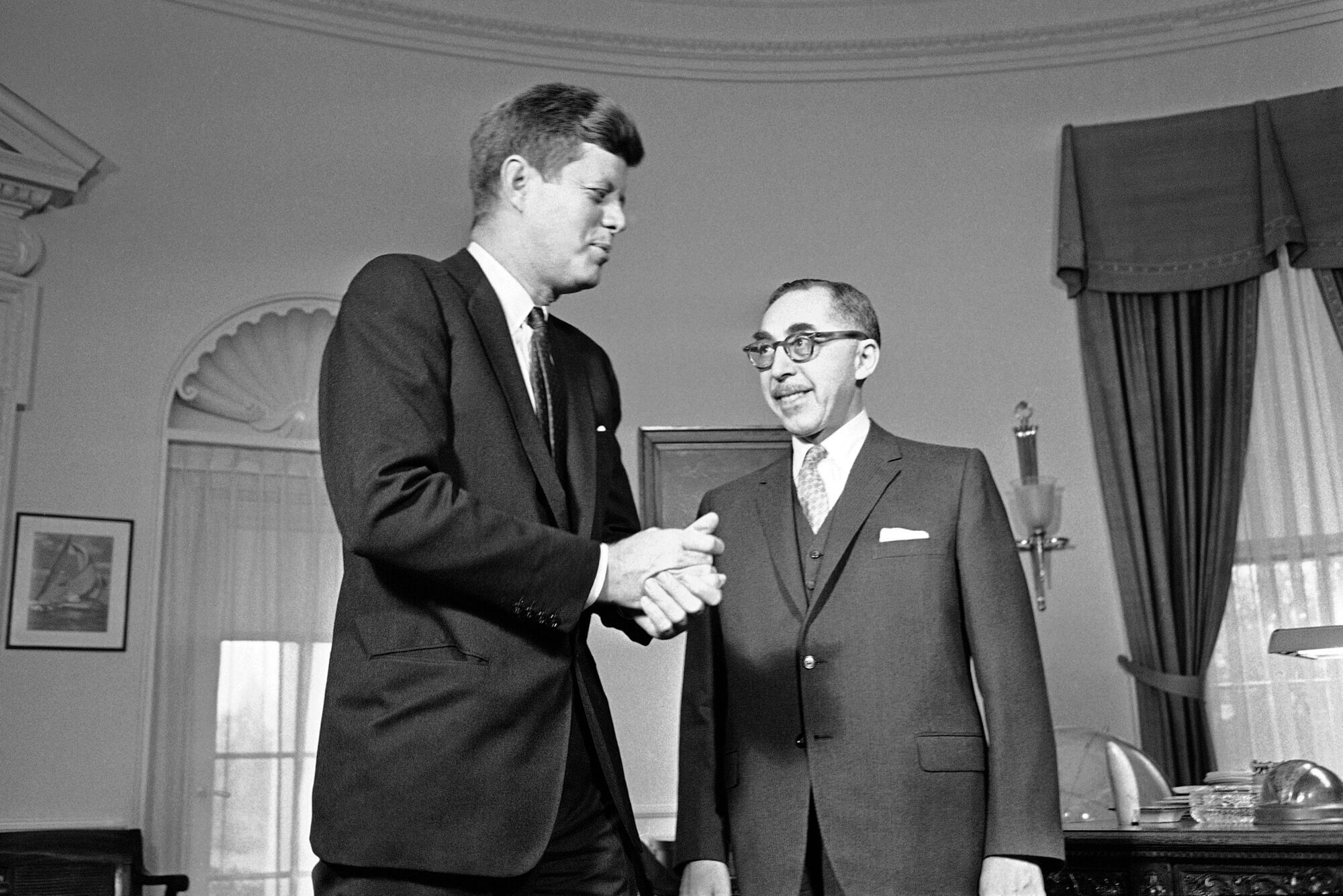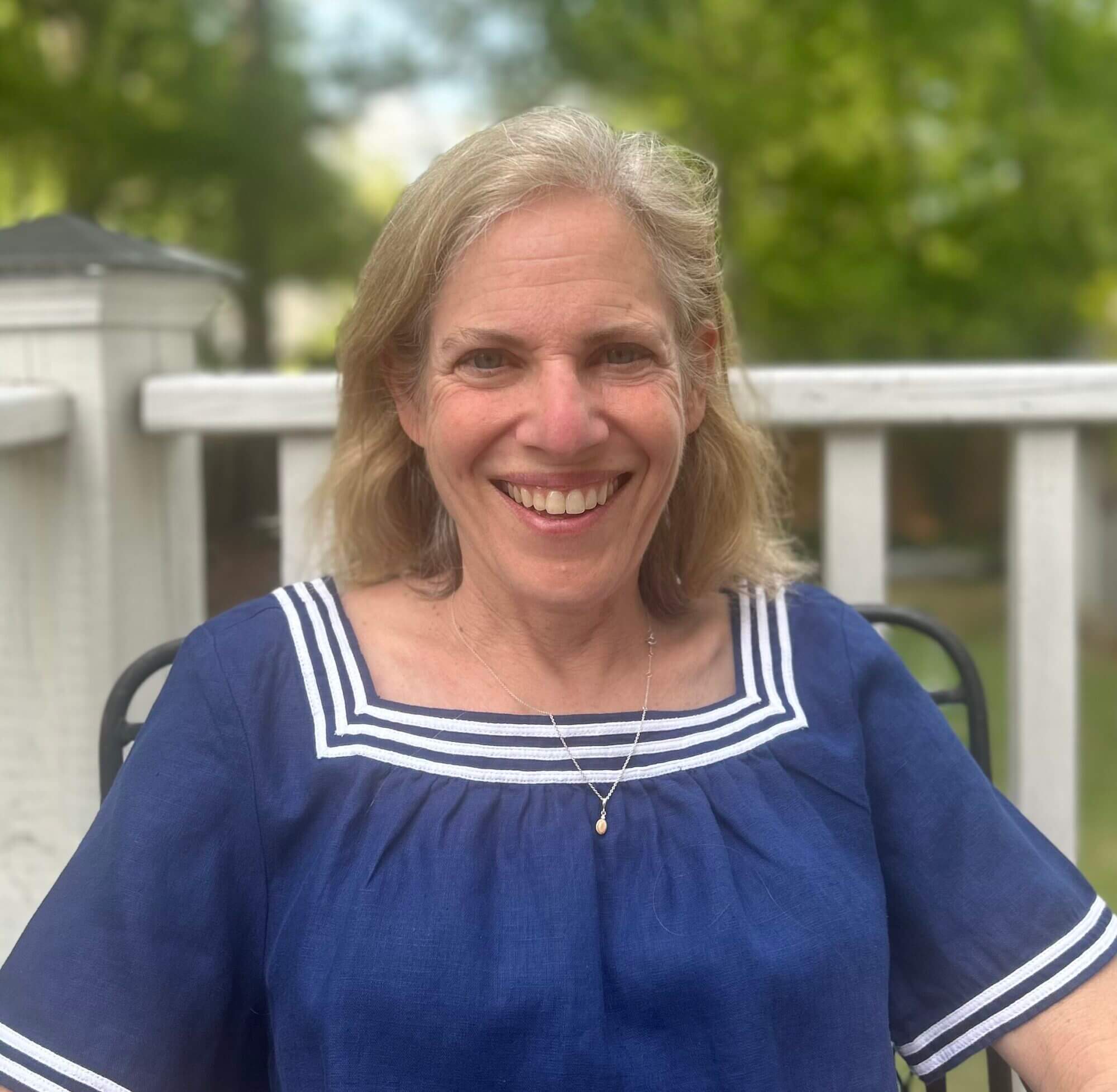

Editor’s note: Nina Rifkind is an adjunct professor at the University of Mississippi Law School and the granddaughter of one of the founders of a major national law firm that recently settled a dispute with President Donald Trump. She agreed to write about that settlement and about her grandfather’s story for Mississippi Today Ideas.
Last month, the Trump administration issued an executive order aimed at the New York law firm Paul, Weiss, Rifkind, Wharton and Garrison (known to many as just “Paul, Weiss”).
The order threatened the firm with withdrawal of the security clearances required to do certain legal work as retribution for work Mark Pomerantz, a former Paul, Weiss partner, had done while employed by the Manhattan District Attorney’s office in connection with the investigation of Trump’s businesses. Within days, Paul, Weiss announced that it had struck a deal with the Trump administration, offering, among other things, millions of dollars’ worth of free legal work for administration endorsed causes, and changes in hiring practices in exchange for the dismissal of the executive order.

While I had been angry about many of the acts of this administration that seemed to undermine the very institutions and ideals of American government and society that I had been raised to revere, this one struck particularly close to my heart.
On the one hand, I had no particular interest in the affairs of this law firm, located half a continent away from my home in Mississippi, and to which I had no personal connection except that it was where my grandfather, Simon H. Rifkind, had practiced law until his death at the age of 94 in 1995. On the other hand, it seemed to me that the executive orders addressed to this law firm, and, ultimately, a handful of others, were an assault on my chosen profession, on our legal system and on our democracy as a whole.
So when the chairman of the firm Brad Karp, in defense of the decision to make a deal, cited the firm’s “Statement of Firm Principles,” written by my grandfather in 1963, I contacted my sister, Amy Rifkind, a lawyer practicing in Washington, D.C. We quickly decided to speak out. We did so in the form of a letter to Mr. Karp, explaining that his decision was an affront to those very principles he claimed to defend.
In that letter, we wrote that our grandfather believed that to practice law in this country is a privilege that comes with “responsibilities both to our profession and our country” and a duty “to protect ‘the prizes of our civilization.’” In light of those duties, we noted that, “We are confident that neither our grandfather, nor his colleagues with whom he built Paul, Weiss, would have negotiated a truce for themselves when the rest of the legal profession remains under threat for doing its jobs as lawyers. Consistent with his values, he would have above all sought to protect the independence of the bar, not just the firm.”
READ MORE: The full letter the Rifkind sisters wrote to Brad Karp
In writing the letter, we hoped that our small evocation of our grandfather’s enduring values would inspire others to speak out with their own messages of hope and courage in the face of adversity. We have been simultaneously stunned, humbled and honored by the media outlets (including Mississippi Today) and individuals that have chosen to amplify our message.
My grandfather was born in Russia at the turn of the last century. He often said that he was born and lived in the 16th century until, at the age of 9, he left his little village and immigrated with his mother and sisters to the United States. Before he left, he had never seen a power-driven piece of machinery, experienced running water or worn any factory-made garment. As is the case with many immigrants, he arrived in this country with no ability to speak English, but with a determination to make a home here. And also like many immigrants, by his teens, that determination had developed into a deep sense of patriotism. That love of country continued to develop throughout his life, fueled by his own varied personal and professional experiences.
He served the public in a variety of ways. He served as a legislative aide to Sen. Robert Wagner, helping to draft some of the New Deal legislation that helped stem the effects of the Great Depression. In 1945-46, as an advisor to Generals Eisenhower and McNarney in Europe, he brought to light the horror and despair experienced by hundreds of thousands of residents of the displaced persons camps in the wake of the Nazi genocide. He spent a decade as a federal judge in the Southern District of New York and a year as special master for a multi-state dispute over use of the Colorado River. But even in private practice at Paul, Weiss, where he spent most of his career and where many of his clients were large private corporations, he believed his work should, and did, serve the public good.
We all know that lawyers get a bad rap as they are often described as greedy and predatory. But to hear my grandfather talk about the practice of law, as my sister and I did during our family’s regular Sunday afternoon visits to his apartment throughout our childhood, you would think he was part of the noblest profession in the world. As a fierce defender of our adversarial system, he believed everyone deserved vigorous and ethical counsel, no matter how rich or poor, popular or unpopular. He believed that every client, whether paying top dollar or receiving the benefit of pro bono representation, deserved the highest quality of work his or her lawyer could provide.
And he believed, as he wrote at the end of his life, that “lawyers are licensed beneficiaries of privileges and immunities received as gifts from the community in which they practice and that they hold these gifts in trust for the service of the community.” In other words, all lawyers, regardless of the nature of their practice, who take their roles seriously and perform their duties with skill and integrity, provide a benefit to society.
My grandfather’s life spanned nearly the entirety of the 20th Century — a century that, despite some very dark moments, saw our country lead the charge in achieving the greatest advances in freedom and prosperity in human history. And while he benefited from those advances, he never lost sight of the fact that the foundations of that freedom, equality and prosperity are fragile and dependent on the individual and institutional pillars of our American democracy.
Indeed, in 1954, he wrote: “Every American generation has inherited from its predecessor the memory of freedom, of liberty and of constitutional government; but every generation if it would retain these prizes of our civilization, must reacquire them in its own lifetime. This day when the winds are full of doctrines subversive of the Constitution, inimical to our liberties, is the time to redevelop muscle and determination to defend them. In their defense we shall survive.”
In the most important respects, my family is not unusual. These principles and values were passed down through casual interactions, a commitment to religious and secular traditions and through modeled behavior. We laughed when my grandfather’s views seemed out of touch with the times. And we used his values as a blueprint to form our own paths and priorities.
I assume most of us grew up with at least some influential figures who adhered to and communicated a set of core values, whether explicitly or by example. And I suspect that despite our different backgrounds and experiences, if we examine those values closely, we will find that there is more that unifies us than divides us.
My sister and I wrote the letter to Mr. Karp as a reminder of what Paul, Weiss’s stated “principles” really mean for the legal profession and for American democracy. In doing so, we revisited those core beliefs ourselves, and hopefully inspired others to as well.
Perhaps, with such values in mind, we can rise above the destructive forces of greed, cynicism and selfish grievance, remember that together we are more than the sum of our parts, and continue our collective march toward freedom, equality and prosperity.
Nina Rifkind is a graduate of Yale College and New York University School of Law. Following law school, she practiced law first in New York and later in Los Angeles. Since moving to Oxford, she has continued to practice in a variety of capacities, most recently as an independent contract attorney and is an adjunct professor at the University of Mississippi Law School, where she teaches the Law and Religion course. She has taught legal writing at the USC Gould School of Law and Advanced Legal Writing at the University of Mississippi. She currently serves on the boards of the Jewish Federation of Oxford and the Oxford School District Foundation.
- Patients face canceled surgeries and delayed care amid UMMC cyberattack - February 20, 2026
- Goal is ‘better alignment, not bigger government’ for Mississippi tourism - February 20, 2026
- Challenging work hours, transportation, and child care continue to be workforce barriers in the Delta - February 20, 2026